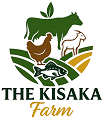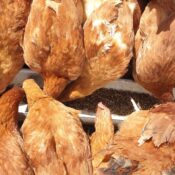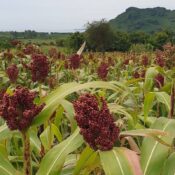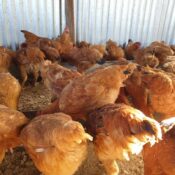
The Climate Change Mitigation Potential
At Kisaka Farm, nestled near the tranquil shores of Lake Victoria in Homa Bay County, our daily work goes beyond growing fresh vegetables and raising healthy livestock. We are deeply rooted in a belief that organic farming is not only about nourishing people but also about healing the planet. In the face of a changing climate, we believe farms like ours hold great promise—not just in producing safe, healthy food, but in actively mitigating the effects of climate change.
A Growing Crisis That Demands Action
Climate change is no longer a distant threat. It is a present reality that impacts weather patterns, food security, water availability, and ecosystem health. Kenya, like many other countries in Africa, has begun to feel the weight of these changes—unpredictable rainfall, prolonged droughts, floods, and declining soil fertility are just a few of the challenges confronting farmers today.
Conventional farming methods, with their heavy reliance on synthetic fertilizers, pesticides, and monoculture practices, have contributed significantly to greenhouse gas emissions and biodiversity loss. These methods degrade the very soil they depend on, leaving it more vulnerable to erosion and less capable of holding carbon.
That’s where organic agriculture steps in—and where Kisaka Farm is leading by example.
Organic Farming: A Natural Solution
Organic agriculture is a time-tested system built on principles of sustainability, soil health, and ecosystem balance. Instead of exploiting the land, we work with it. Our focus on crop diversity, natural pest control, composting, and soil regeneration allows us to produce high-quality food while restoring the health of our environment.
But how exactly does this help with climate change?
1. Carbon Sequestration Through Healthy Soil
One of the most powerful climate tools sits quietly beneath our feet—soil. Healthy soils rich in organic matter can act as carbon sinks, absorbing and storing atmospheric carbon dioxide (CO₂) for long periods. At Kisaka Farm, we use compost, cover crops, and crop rotations to increase soil organic matter. This not only improves soil fertility and moisture retention but also locks away CO₂ in the ground rather than releasing it into the air.
2. Reduced Emissions from Chemicals and Machinery
Conventional agriculture contributes significantly to greenhouse gas emissions through the production and application of synthetic fertilizers and pesticides. These products are energy-intensive to manufacture and release nitrous oxide—a greenhouse gas nearly 300 times more potent than CO₂—when applied to fields.
By completely avoiding synthetic inputs, Kisaka Farm significantly reduces its carbon footprint. Our methods rely on compost, manure, and plant-based treatments that work in harmony with the ecosystem instead of disrupting it.
We also adopt minimal tillage and smart water usage practices that reduce the need for fossil-fuel-powered machinery, further cutting down on emissions.
3. Promoting Biodiversity and Resilience
Monoculture farming weakens ecosystems and makes them more susceptible to pests, disease, and climate-related stress. On the other hand, biodiversity acts as a buffer against environmental shocks.
At Kisaka Farm, we grow a wide range of crops—local leafy greens like sukuma wiki (kale), terere (amaranth), managu (African nightshade), as well as tomatoes, onions, and green peppers. We also keep indigenous kienyeji chickens and gala goats. This diversity strengthens our farm’s ecological balance, supports pollinators, and improves pest resistance—all of which enhance resilience to climate extremes.
Diverse farming systems are better able to withstand erratic weather patterns and continue producing food, even when conditions are tough. This resilience is vital for future food security in a warming world.
4. Supporting Local Food Systems
Another often-overlooked benefit of farms like ours is their role in reducing food miles. When food travels long distances from industrial farms to your table, it racks up carbon emissions through transport, storage, and packaging.
At Kisaka Farm, our focus is local. We supply directly from the farm to nearby retailers, households, and institutions like hotels and restaurants. This not only strengthens local economies and food security but also minimizes the carbon cost of food distribution.
5. Educating for a Sustainable Future
Perhaps one of the most important roles organic farms can play is as centers of knowledge and inspiration. By showing what’s possible—growing food sustainably, regenerating land, and feeding communities—we help shift mindsets and encourage others to adopt eco-friendly practices.
At Kisaka Farm, we are not just farmers—we are stewards of the land, educators, and advocates for a better, greener future.
The Path Forward
There is no one-size-fits-all solution to climate change, but agriculture—especially organic, regenerative agriculture—offers one of the most immediate and scalable tools available. By transforming how we grow our food, we can help reverse global warming, build resilience, and restore ecosystems.
We invite everyone—consumers, retailers, and institutions—to become part of this movement. Every time you choose Kisaka Farm produce, you’re not only nourishing your body with fresh, chemical-free food, but also supporting a model of agriculture that works with the earth rather than against it.
Together, let’s farm the future.
Recent Posts
From Soil to Soul: Discover the Organic Goodness of The Kisaka Farm
Could Organic farming help solve the climate crisis?
+254 700 433 877
info@kisakafarm.com



